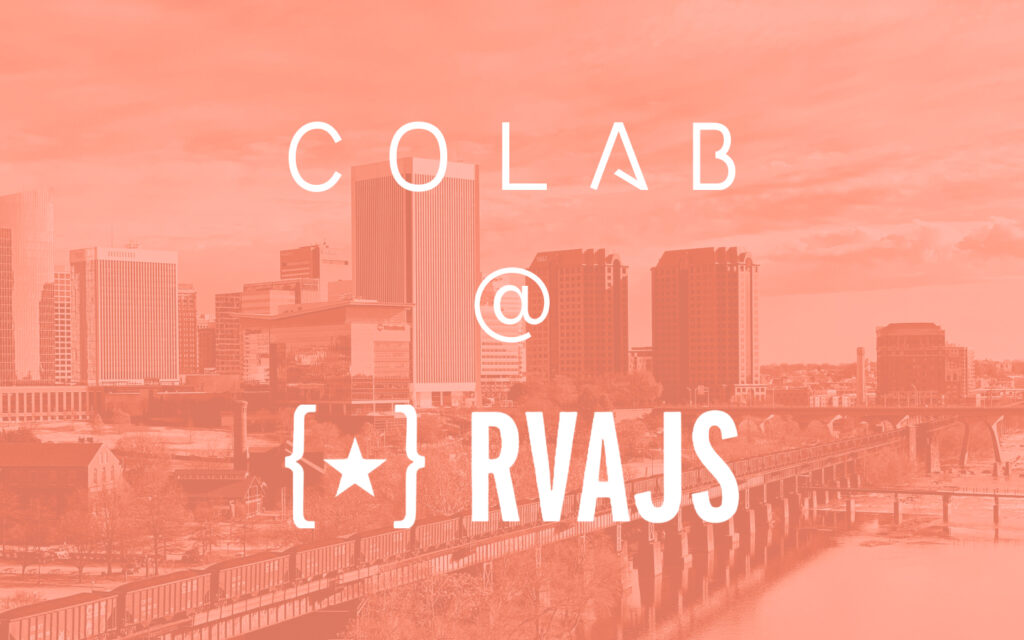RVA.js 2025 Event Recap: Inspiring Talks for JavaScript Developers

The RVA.js 2025 conference returned for its sixth annual event, bringing together developers, web technologists, and JavaScript enthusiasts in Richmond, VA. With a sold-out crowd at Snead Hall on the VCU campus, the event offered a full day of outstanding sessions covering everything from preventing security vulnerabilities to leveraging AI for next-gen apps. If you missed it, here’s a detailed recap of the highlights and key insights from RVA.js 2025.
A Quick Overview of RVA.js 2025
RVA.js is Richmond’s premier JavaScript conference, dedicated to exploring all things JavaScript from TypeScript to Node.js to React. The one-day event featured three tracks, providing attendees with tools, best practices, and actionable ideas to enhance their skills. Here’s what made this year stand out:
- Date and Venue: March 14, 2025, at Snead Hall with free parking at the Jefferson Street Parking Deck.
- Sponsors: Supported by Shoreline, Recruiting Concepts, and LaMar Software.
- Tracks and Topics: Three tracks covering diverse areas like browser-based audio processing, secure native app development, AI-driven workflows, and more.
- Networking Opportunities: Lunch and networking sessions gave attendees the chance to connect and share insights with other JavaScript professionals.
Key Takeaways from the Top Talks
Preventing Common Security Vulnerabilities
Speaker: Melecia McGregor
Preventing security issues is critical for any JavaScript developer. Melecia McGregor shared actionable tips for mitigating vulnerabilities in modern web apps by adhering to practical security strategies.
Key Lessons:
- Follow the OWASP Top 10 Security Practices to safeguard apps.
- Use strong typing and write thorough tests to reduce errors.
- Implement safeguards like access control, request sanitization, and proper logging.
- Limit database interaction in request methods and perform static code analysis using tools like Snyk and npm audit.
By removing boilerplate code and avoiding shortcuts like copy-pasting, developers can minimize risk and keep applications secure.
Audio Processing in the Browser with Essentia.js
Speaker: Jonathan McDonnell
If you’ve never considered the potential of audio processing in JavaScript, Essentia.js could change your mind. This C++ web binding library enables browser-based audio analysis, editing, and generation.
Key Takeaways:
- Essentia powers games like Crypt of the NecroDancer, a rhythm game that rewards the player for matching game inputs with in-game music tempo.
- Core components include audio oscillators, gain controllers, and custom AudioWorklets for processing.
Audio enthusiasts and game developers alike walked away with many ideas to enrich their applications using browser-native tools.
Leveraging Playwright for Powerful React Testing
Speaker: Frank Visaggio
Testing is a non-negotiable part of modern development. Frank Visaggio’s session on Playwright highlighted its capabilities for end-to-end and integration testing in React apps.
Pro Tips:
- Focus on code assurance, not just test coverage.
- Test in isolation with tools like Storybook to ensure reliable UI components.
- Run tests in CI/CD pipelines using Playwright features like Trace Viewer and Locators.
With these strategies, attendees learned to streamline their testing processes and improve build quality with confidence.
Secure, Small, Fast: Building Native Apps with Tauri
Speaker: Michael Marino
Native app development has often been associated with bulky frameworks and performance hurdles. Michael Marino introduced the audience to Tauri, a lightweight framework pairing a Rust backend with WebView-based UIs.
Pros of Tauri Apps:
- Excellent security thanks to sandboxing and isolated APIs.
- Small app footprints compared to traditional frameworks.
Michael also spoke about trade-offs such as performance reliance on WebViews, providing a balanced perspective for attendees considering this framework.
A Developer’s Guide to Open Source Web Mapping Libraries
Speaker: Courtney Yatteau
Web mapping is the backbone of location-based services, and choosing the right library is essential. Courtney Yatteau’s talk introduced developers to leading open-source web mapping libraries and their applications.
Popular Libraries Reviewed:
- Leaflet: Ideal for simple projects but struggles with large datasets.
- MapLibre GL: Open-source Mapbox alternative with smooth animations.
- OpenLayers: Highly flexible; great for advanced use cases but has a steeper learning curve.
Courtney’s concise comparisons helped attendees understand which library suits their projects based on needs and scale.
From Fuzz to Function: AI for Next-Gen Apps
Speaker: Justin Schroeder
AI development is often plagued by unpredictable responses and fragmented workflows. Justin Schroeder’s session provided a guide to overcoming these challenges and building reliable, next-gen AI apps.
Actionable Steps:
- Use AI state isolation and modular workflows to control unpredictability.
- Validate outputs using additional AI models for better consistency.
- Implement smart observability to track key metrics, like cost and API usage thresholds.
For developers leveraging LLMs, Justin emphasized building repeatable, deterministic outcomes to establish user trust.
Highlights from the RVA.js Community
Beyond the incredible talks, RVA.js continues to serve as a hub for networking, inspiration, and collaboration within the JavaScript ecosystem. With a mix of local talent and industry leaders, the conference highlighted the vibrant tech culture in Richmond, VA. First-time speakers like Jonathan McDonnell proved that RVA.js is not just for seasoned professionals but also a platform for emerging voices.
Final Reflections and How to Stay Connected
RVA.js 2025 reaffirmed why JavaScript is such a dynamic and exciting field. From hands-on insights into state-of-the-art tools like Playwright and Tauri to explorations of open-source innovations, attendees left with fresh ideas and strategies to elevate their work.
Are you ready to deepen your JavaScript skills or discover new frameworks? Make sure to secure your spot for the next RVA.js event! Until then, stay connected with the community, try implementing these insights in your projects, and keep building amazing things.
